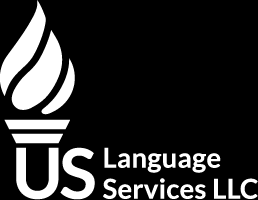How to Work in the U.S. As a Foreign-Educated Dietician or Nutritionist

Working in the U.S. as a foreign-educated dietician or nutritionist is a great way to utilize your skills in the country you wish to immigrate to. One of the advantages of working in the United States as a foreign-educated dietician or nutritionist is the career opportunities you’ll have, and the pay. According to the U.S. Bureau of Labor Statistics, the average dietitian or nutritionist makes between $42,530 and $93,640, with the median per-year salary being $61,650. To achieve this, you will need to get your foreign credential recognized and complete the steps to practice as a dietician or nutritionist in the U.S. Our guide gives you important information about these steps and answers questions like:
- What Is the Process for Working in the U.S. As a Foreign-Educated Dietician or Nutritionist?
- How Much Does It Cost to Work as a Foreign-Educated Dietician or Nutritionist in the U.S.?
- How Long Does It Take To Work as a Foreign-Educated Dietician or Nutritionist in the U.S.?
- Are There Any Restrictions to Working as a Foreign-Educated Dietician or Nutritionist in the U.S.?
- What Are the State-Specific Requirements for Foreign-Educated Dieticians or Nutritionists?
- What Are the Immigration Requirements for Foreign-Educated Dieticians or Nutritionists?
- Where Can I Get a Certified Translation?
What Is the Process for Working in the U.S. As a Foreign-Educated Dietician or Nutritionist?
The process for working in the U.S. as a foreign-educated dietician or nutritionist involves meeting education, testing, and licensing requirements, many of which vary based on the state you wish to work in. It’s important to note that while dietician and nutritionist are terms that are often used interchangeably, they are different careers. Dieticians are more regulated and require specific examinations to obtain the title of Registered Dietician (RD); many professionals may be eligible to claim they are a nutritionist, and there are certifications available if you want to demonstrate your dedicated knowledge to this profession, such as the Certified Nutrition Specialist (CNS) protected title. The processes for becoming a Registered Dietician or Certified Nutrition Specialist are fairly similar, and we will note differences where applicable in the steps of this process below:
- Meeting the education requirements for dieticians and nutritionists is your first step in this process. Before being eligible for the title of Registered Dietician or Certified Nutrition Specialist, you will need to meet the education requirements of the Accreditation Council for Education in Nutrition and Dietetics (ACEND). As of January 2024, a master’s degree (or its foreign equivalent where applicable) is required before you are eligible to take certification exams.
Additional programs you might need to take to be eligible to test for the professional Registered Dietician title include the:
- Coordinated Program (CP)
- Didactic Program in Dietetics (DPD) and Dietetic Internship (DI)
- Future Education Model Graduate Program in Nutrition and Dietetics (GP)
- Dietetic Technician (DT) Program
The program that you select depends on your specific education and certification goals. The Academy of Nutrition and Dietetics offers more information on each specific program. As you select a program, make sure to keep in mind that some programs do allow you to show your foreign credentials to demonstrate that you have already completed some or all of the required courses. You will need to obtain a credential evaluation of your original academic documents and other important records through one of the Commission on Dietetic Registration (CDR)’s approved credential evaluation services; detailed course-by-course breakdowns are recommended. Keep in mind that you will also likely need to obtain certified translations of your original documents to submit to the credential evaluation service you choose.
- Once you’ve chosen a program to apply to, provided the program director with your credential evaluation, completed any additional courses, and completed a supervised internship or other practical coursework required by the program you chose, you will be eligible to take the Commission on Dietic Registration (CDR) exam. This exam tests your knowledge of things that certified dieticians or nutritionists must know, and you need to obtain a passing score if you want to be a Registered Dietician. Individuals that are interested in obtaining qualifications as a nutritionist must pass the Certified Nutrition Specialist (CNS) exam after meeting any prerequisite education requirements.
- After you have passed the exam applicable to your situation, you will need to look into state licensing. Some states require exams, ethics courses, and continuing education in addition to the professional RD or CNS credential you earn through testing and examination. Research the state licensing boards of the state you wish to work in and consult the Commission on Dietetic Registration’s licensure map and statutes by state for more detailed information about specific-state requirements.
Individuals that complete each step of this process and obtain licensure where needed should then look into immigration requirements. There are many immigration routes and visa types that you may be able to utilize as a foreign-educated dietician or nutritionist. Additional information on this process is offered by the Academy of Nutrition and Dietetics.
How Much Does It Cost to Work as a Foreign-Educated Dietician or Nutritionist in the U.S.?
The cost of completing this process and working as a dietitian or nutritionist in the U.S. varies depending on the education program you choose to enroll in, which classes you are required to take, and if you will need to obtain specific state licensing. Overall, it will cost you a few thousand dollars on average to complete this process, including the cost of credential evaluations, certified translations, the CDR or CNS exam (and preparation materials), and state licensing fees, which ranges from about $100 to $300. You may also need to pay for continuing education and licensure renewal fees each year depending on what your state requires of Registered Dietitians or Certified Nutrition Specialists. Visa costs range between about $460 to several thousand dollars depending on the type of visa you are applying for and if background checks or other information is required. Once you choose a specific visa to apply for, you can research more detailed cost information.
How Long Does It Take To Work as a Foreign-Educated Dietician or Nutritionist in the U.S.?
Depending on how many education requirements you need to complete in the U.S., the process of working as a foreign-educated dietician or nutritionist can take a few years. You will need to work with your education program to demonstrate that you’ve already completed the requirements and fulfill any missing education and practice work requirements to ensure you are eligible to take the CDR or CNS exam. The CDR and CNS exams both require several months of studying time, with 3 to 4 months being the average recommended time to prepare before taking these exams. State licensing can take a few months as you submit applications and gather important documents, and obtaining a visa to work in the United States also adds time to this process as any visa types take between 13 and 24 months to fully process.
Are There Any Restrictions to Working as a Foreign-Educated Dietician or Nutritionist in the U.S.?
Once you have completed all education requirements, passed required examinations, and obtained any applicable state licensure, you will be able to practice as a dietician or nutritionist in the United States without issue. Make sure that you keep up with any continuing education or licensing requirements to ensure that your practice in the U.S. isn’t interrupted in any way.
What Are the State-Specific Requirements for Foreign-Educated Dieticians or Nutritionists?
State requirements for foreign-educated dieticians and nutritionists vary, and you will need to check with the state that you wish to work in for specific requirements. If the state you choose requires licensing, you will need to make sure that you submit the proper application, evidence of your education, and test scores to the licensing board for that state. More information about specific state requirements for dieticians and nutritionists is found via the licensure part of the Academy of Nutrition and Dietetics website or directly through state licensing and government websites.
What Are the Immigration Requirements for Foreign-Educated Dieticians or Nutritionists?
Many dieticians or nutritionists that work in the United States have their own practices or are self-employed, something which requires a specific type of visa. In many cases, dieticians or nutritionists that plan to start their own businesses may be able to obtain an O-1 visa or an E-2 treaty investor visa. If you wish to work with a company in the United States, you will most likely need to obtain an employment-based visa. EB-2 or EB-3 visas are the most common employment-based visas for immigrating workers; you’ll need sponsorship from an employer in the United States to complete the application for this visa type. Other reasons that might apply include the H1-B visa for specialty occupations and the TN NAFTA professionals visa for professionals that come from Canada or Mexico. You will need to consult with a U.S. immigration lawyer to get a better idea of which visa is the best for your specific situation and the specifics on how to apply for your visa.
Where Can I Get a Certified Translation?
Certified translations of important documents like original academic transcripts, diplomas, resumes, and other personal records are often essential during many steps of the immigration and job-seeking process. It’s vital that you obtain certified translations of your academic documents that you can trust; our online store is the best place to secure certified translations of documents such as:
- Diplomas
- Academic transcripts
- Business licenses and certifications
- Resumes and employment records
- Birth certificates
Guaranteed Acceptance
All our certified to English translations are accepted by the USCIS. Our translations follow the guidelines established by the USCIS and are also accepted by educational institutions.
Most Requested Documents
FAQs
You can order most translations 24 hours a day, 7 days a week through our online store. For large projects (more than 20,000 words or 50 pages), please request a quote.



